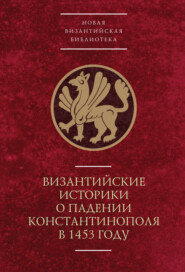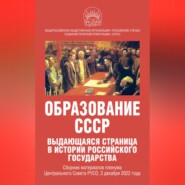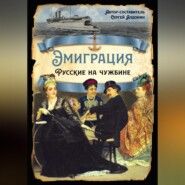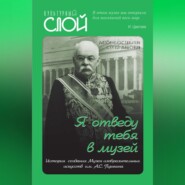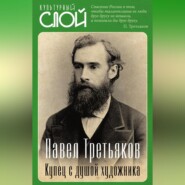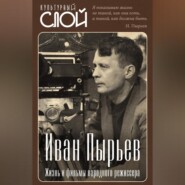По всем вопросам обращайтесь на: info@litportal.ru
(©) 2003-2024.
✖
Tales from the German, Comprising specimens from the most celebrated authors
Настройки чтения
Размер шрифта
Высота строк
Поля
His heart burst, – his spirit fled; but Rosamond did not remain with him, for fate snatched her from his dying hand, and cast her back upon earth, living. She felt if his hand had the coldness of death, and since it had, she placed it softly against her heart, sunk slowly upon her failing knees, and raised her face, which had become inexpressibly serene, towards the starry power. Her eyes, from their tearless sockets, pressed forth dry, large, and happy, into the sky, and therein calmly sought a supernatural form, which should descend and bear her up. She almost fancied she was dying then, and prayed thus: "Come, thou angel of rest, come and take my heart, and bear it to my beloved. Angel of rest! leave me not so long alone among the corses. Oh, God! is there then nought invisible about me? Angel of death! thou must be here, thou hast already snatched away two souls close by me, and hast made them ascend. I, too, am dead, draw forth my glowing soul from its cold kneeling corse."
With mad disquiet, she looked about in the vacant sky. Suddenly, in that still desert, a star shone forth, and wound its way towards the earth. She spread her arms in transport, and thought the angel of rest was rushing towards her. Alas! the star passed away, but she did not. "Not yet? Do I not die yet, All-merciful One?" sighed poor Rosamond.
In the east a cloud arose, – it passed over the moon, sailed in loneliness across the clear sky, and stood over the most agonised heart upon earth. She threw back her head, so as to face the cloud, and said to the lightning, "Strike this head, and release my heart!" But the cloud passed darkly over the head that was thrown back for it, and flying down the sky, sunk behind the mountains. Then, with a thousand tears, she cried, "Can I not die? Can I not die?"
Poor Rosamond! How did pain roll itself together, give an angry serpent-spring at thy heart, and fix in it all its poisonous teeth. But a weeping spirit poured the opium of insensibility into thine heart, and the bursts of agony flowed away in a soft convulsion.
She awoke in the morning, but her mind was unsettled. She saw the sun and the dead man, but her eye had lost all tears, and her burst heart had, like a broken bell, lost all tone; she merely murmured, "Why can I not die?" She went back cold into her hut, and said nothing but these words. Every night she went half an hour later to the corpse, and every time she met the rising moon, which was now broken, and said, while she turned her mourning, tearless eye towards its gleaming meadows, "Why cannot I die?"
Ay, why canst thou not, good soul? for the cold earth would have sucked out of all thy wounds the last venom with which the human heart is laid beneath its surface, just as the hand when buried in earth recovers from the sting of a bee. But I turn mine eye away from thy pain, and look up at the glimmering moon, where Eugenius opens his eyes among smiling children, and his own child, now with wings, falls upon his heart. How quiet is every thing in the dimly lit portico of the second world, a misty rain of light silvers o'er the bright fields of the first heaven, and beads of light instead of sparkling dew hang upon flowers and summits, – the blue of heaven is darker over the lily plains, all the melodies in the thinner air are but a dispersed echo, – only night-flowers exhale their scents, and dazzle waving around calmer glances – here the waving plains rock as in a cradle the crushed souls, and the lofty billows of life fall gliding apart – then the heart sleeps, the eye becomes dry, the wish becomes silent. Children flutter like the hum of bees around the heart which is sunk in earth, and is still palpitating, and the dream after death represents the earthly life, as a dream here represents childhood here, magically, soothingly, softly, and free from care.
Eugenius looked from the moon towards the earth, which for a long moon-day – equal to two earth-weeks – floated like a thin white cloud across the blue sky; but he did not recognise his old motherland. At last the sun set to the moon, and our earth rested, large, glimmering, and immoveable, on the pure horizon of Elysium, scattering, like a water-wheel upon a meadow, the flowing beams upon the waving Elysian garden. He then recognised the earth, upon which he had left a heart so troubled, in a breast so beloved; and his soul, which reposed in pleasure, became full of melancholy, and of an infinite longing after the beloved of his former life, who was suffering below. "Oh, my Rosamond! why dost thou not leave a sphere, where nothing more loves thee?" And he cast a supplicating look at the angel of rest, and said: "Beloved one, take me down from the land of quiet, and lead me to the faithful soul, that I may see her, and again feel pain, so that she may not pine alone."
Then his heart began suddenly, as it were, to float without any bounds; breezes fluttered around him, as though they raised him flying, wafted him away as they swelled, and veiled him in floods; he sank through the red evening twilights as through roses, and through the night as through bowers, and through a damp atmosphere which filled his eye with drops. Then it seemed as though old dreams of childhood had returned – then there arose a complaint from the distance, which re-opened all his closed wounds; the complaint, as it drew nearer, became Rosamond's voice – at last she herself was before him, unrecognisable, alone, without solace, without a tear, without colour.
And Rosamond dreamed upon the earth, and it was to her as though the sun took wings, and became an angel. This angel, she dreamed, drew down towards her the moon, which became a gentle face. Beneath this face, as it approached her, a heart at last formed itself. It was Eugenius, and his beloved arose to meet him. But as she exclaimed, with transport, "Now I am dead!" the two dreams, both hers and his, vanished, and the two were again severed.
Eugenius waked above, the glimmering earth still stood in the sky, his heart was oppressed, and his eye beamed with a tear which had not fallen on the moon. Rosamond waked below, and a large warm dew-drop hung in one of the flowers of her bosom. Then did the last mist of her soul shower down in a light rain of tears, her soul became light and sun-clear, and her eye hung gently on the dawning sky; the earth was indeed strange to her, but no longer hateful; and her hands moved as though they were leading those who had died.
The angel of rest looked upon the moon, and looked upon the earth, and he was softened by the sighs from both. On the morning-earth he perceived an eclipse of the sun, and a bereft one; he saw Rosamond during this transient night sink upon the flowers that slept in the darkness, and into the cold evening-dew which fell upon the morning-dew, and stretching forth her hands towards the shaded heaven, which was full of night-birds, look up towards the moon with inexpressible longing, as it floated trembling in the sun. The angel looked upon the moon, and near him wept the departed one, who saw the earth swimming deep below, – a flood of shade, fitted into a ring of fire, and from whom the mourning form that dwelt upon it, took all the happiness of heaven. Then was the heavenly heart of the angel of peace broken – he seized the hand of Eugenius and that of his child – drew both through the second world, and bore them down to the dark earth. Rosamond saw three forms wandering through the obscurity, the gleam from whom reached the starry heaven, and went along hovering over them. Her beloved and her child flew like spring-days to her heart, and said, "Oh, thou dear one, come with us!" Her maternal heart broke with maternal love, the circulation of earth-blood was stopped, her life was ended; and happily, happily, did she stammer forth to the two beloved hearts, "Can I not then die?" "Thou hast died already," said the angel of the three fond ones, weeping with joy, "Yonder thou seest the sphere of earth, whence thou comest, still in shade." And the waves of joy closed on high over the blessed world, and all the happy and all children looked upon our sphere which still trembled in the shade.
Yea, indeed, is it in shade! But man is higher than his place. He looks up and spreads the wings of his soul, and when the sixty minutes, which we call sixty years, have finished striking, he then lifts himself up, and kindles himself as he rises, and the ashes of his plumage fall back, and the unveiled soul rises alone, free from earth, and pure as a musical tone. But here, in the midst of dark life, he sees the mountains of the future world standing in the morning gold of a sun that does not arise here. Thus, the inhabitant of the North Pole in the long night, when the sun has ceased to rise, discerns at twelve o'clock, a dawn gilding the highest mountains, and he thinks of his long summer, when it will set no more.
J. O.
THE ELEMENTARY SPIRIT
BY E. T. W. HOFFMANN
On the 20th of November, 1815, Albert von B – , lieutenant-colonel in the Prussian service, found himself on the road from Liège to Aix-la-Chapelle. The corps to which he belonged was on its return from France to march to Liège to head-quarters on that very day, and was to remain there for two or three days more. Albert had arrived the evening before; but in the morning he felt himself attacked by a strange restlessness, and – as he would hardly have confessed to himself – an obscure dream, which had haunted him all night, and had foretold that a very pleasant adventure awaited him at Aix-la-Chapelle, was the only cause of his sudden departure. Much surprised even at his own proceeding, he was sitting on the swift horse, which would, he hoped, take him to the city before nightfall.
A severe cutting autumn wind roared over the bare fields, and awakened the voices of the leafless wood in the distance, which united their groans to its howling. Birds of prey came croaking, and followed in flocks the thick clouds which gathered more and more, until the last ray of sunlight had vanished, and a faint dull gray had overspread the entire sky. Albert wrapped his mantle more closely about him, and while he trotted on along the broad road, the picture of the last eventful time unfolded itself to his imagination. He thought how, a few months before, he had travelled on the same road, in an opposite direction, and during the loveliest season of the year. The fields then bloomed forth luxuriantly, the fragrant meadows resembled variegated carpets, and the bushes in which the birds joyously chirped and sung, shone in the fair light of golden sunbeams. The earth, like a longing bride, had richly adorned herself to receive in her dark nuptial chamber, the victims consecrated to death – the heroes who fell in the sanguinary battles.
Albert had reached the corps to which he was appointed, when the cannon had already begun to thunder by the Sambre, though he was in time enough to take part in the bloody battles of Charleroi, Gilly, and Gosselins. Indeed, chance seemed to wish that Albert should be present just when any thing decided took place. Thus he was at the last storming of the village Planchenoit, which caused the victory in the most remarkable of all battles – Waterloo. He was in the last engagement of the campaign, when the final effort of rage and fierce despair on the part of the enemy wreaked itself on the immoveable courage of the heroes, who having a fine position in the village of Issy, drove back the foe as they sought, amid the most furious discharge of grape, to scatter death and destruction in the ranks; and indeed drove them back so far, that the sharp-shooters pursued them almost to the barriers of Paris. The night afterwards (that of the 3rd and 4th of July), was, as is well known, that on which the military convention for the surrender of the metropolis was settled at St. Cloud.
The battle of Issy now rose brightly before Albert's soul; he thought of things, which as it seemed, he had not observed, nay, had not been able to observe during the fight. Thus the faces of many individual officers and men appeared before his eyes, depicted in the most lively manner, and his heart was struck by the inexplicable expression, not of proud or unfeeling contempt of death, but of really divine inspiration, which beamed from many an eye. Thus he heard sounds, now exhorting to fight, now uttered with the last sigh of death, which deserved to be treasured up for posterity like the animating utterances of the heroes of antiquity.
"Do I not," thought Albert, "almost feel like one who has a notion of his dream when he wakes, but who does not recollect all its single features till several days afterwards? Ay, a dream, and only a dream, one would think, by flying over time and space, with its mighty wings, could render possible, the gigantic, monstrous, unheard-of events, that took place during the eighteen eventful days of a campaign, which mocks the boldest thoughts, the most daring combinations of the speculative mind. Indeed the human mind does not know its own greatness; the act surpasses the thought. For it is not rude physical force, no! it is the mind, which creates deeds as they have happened, and it is the psychic power of every single person, really inspired, which attaches itself to the wisdom and genius of the general, and helps to accomplish the monstrous and the unexpected."
Albert was disturbed in these meditations by his groom, who kept about twenty paces behind him, and whom he heard cry out, "Eh! Paul Talkebarth, where the deuce do you come from?" He turned his horse, and perceived that a horseman, who had just trotted past him, and whom he had not particularly observed, was standing still with his groom, beating out the cheeks of the large fox-fur cap with which his head was covered, so that soon the well-known face of Paul Talkebarth, Colonel Victor von S – 's old groom, was made manifest, glowing with the finest vermilion.
Now Albert knew at once what it was that impelled him so irresistibly from Liège to Aix-la-Chapelle, and he could not comprehend how the thought of Victor, his most intimate and dearest friend, whom he had every reason to suppose at Aix, merely lay dimly in his soul, and attained nothing like distinctness. He now also cried out, "Eh! Paul Talkebarth, whence do you come? Where is your master?"
Paul curvetted up to him very gracefully, and said, holding the palm of his hand against the far-too-large cockade of his cap, by way of military salutation: "Yes, 'faith, I am Paul Talkebarth indeed, gracious lieutenant-colonel. We've bad weather here, Zermannöre (sur mon honneur). But the groundsel brings that about. Old Lizzy always used to say so. I cannot say, gracious lieutenant-colonel, if you know Lizzy: she lives at Genthin, but if one has been at Paris, and has seen the wild goat in the Schartinpland (Jardin des Plantes). – Now, what one seeks for one finds near, and here I am in the presence of the gracious lieutenant-colonel, whom I was to seek at Liège. The spirus familis (spiritus familiaris), whispered yesterday evening into my master's ear, that the gracious lieutenant-colonel had come to Liège. Zackermannthö (sacré mon de Dieu), there was delight! It may be as it will, but I have never put any faith in the cream-colour. A fine beast, Zermannöre, but a mere childish thing, and the baronness did her utmost – that is true! There are decent sort of people here, but the wine is good for nothing – and when one has been in Paris – ! Now, the colonel might have marched in, like one through the Argen trumph (Arc de triomphe), and I should have put the new shabrach on the white horse; gad, how he would have pricked up his ears! But old Lizzy, – she was my aunt, at Genthin, was always accustomed to say – I don't know, gracious lieutenant-colonel, whether you – "
"May your tongue be lamed," said Albert, interrupting the incorrigible babbler. "If your master is at Aix, we must make haste, for we have still above five leagues to go."
"Stop," cried Paul Talkebarth, with all his might; "stop, stop, gracious lieutenant-colonel, the weather is bad here; but for fodder – those who have eyes like us, that shine in the fog."
"Paul," cried Albert, "do not wear out my patience. Where is your master? Is he not in Aix?"
Paul Talkebarth smiled with such delight, that his whole countenance puckered up into a thousand folds, like a wet glove, and then stretching out his arm he pointed to the building, which might be seen behind the wood, upon a gentle declivity, and said, "Yonder, in the castle!" Without waiting for what Paul might have to prattle further, Albert struck into the path that led from the high road, and hurried on in a rapid trot. After the little that he has said, honest Paul Talkebarth must appear to the gracious reader as an odd sort of fellow. We have only to say, that he being an heir-loom of the family, served Colonel Victor von S – from the moment when the latter first put on his officer's sword, after having been the intendent-general and maître des plaisirs of all the sports and mad pranks of his childhood. An old and very odd magister, who had been tutor to the family through two generations, completed, with the amount of education which he allowed to flow to honest Paul, those happy talents for extraordinary confusion and strange Eulenspiegelei[26 - Eulenspiegelei signifies odd practical jokes, and is derived from Eulenspiegel, the traditional perpetrator of such pleasantries. – J. O.] with which nature had by no means scantily endued him. At the same time he was the most faithful soul that could possibly exist. Ready every moment to sacrifice his life for his master, neither his advanced age nor any other consideration could prevent the good Paul from following him to the field in the year 1813. His own nature rendered him superior to every hardship; but less strong than his corporeal was his spiritual nature, which seemed to have received a strange shock, or at any rate some extraordinary impulse during his residence in France, especially in Paris. Then, for the first time, did he properly feel that Magister Spreugepileus had been perfectly right when he called him a great light, that would one day shine forth brightly. This shining quality Paul had discovered by the aptness with which he had accommodated himself to the manners of a foreign people, and had learned their language. Therefore, he boasted not a little, and ascribed it to his extraordinary talent alone, that he could often, in respect to quarters and provisions, obtain that which seemed unattainable. Talkebarth's fine French phrases, the gentle reader has already been made acquainted with some pleasant curses – were current, if not through the whole army, at any rate through the corps to which his master was attached. Every trooper who came to quarters in a village, cried to the peasant with Paul's words, "Pisang! de lavendel pur di schevals!" (Paysan, de l'avoine pour les chevaux.)
Paul, as is generally the case with eccentric natures, did not like things to happen in the ordinary manner. He was particularly fond of surprises, and sought to prepare them in every possible manner for his master, who was certainly often surprised, though in quite another manner than was designed by honest Talkebarth, whose happy schemes generally failed in their execution. Thus, he now entreated Lieutenant-colonel von B – , when the latter was riding straight up to the principal entrance of the house, to take a circuitous course and enter the court-yard by the back way, that his master might not see him before he entered the room. To meet this view, Albert was obliged to ride over a marshy meadow, where he was grievously splashed by the mud, and then he had to go over a fragile bridge on a ditch. Paul Talkebarth wished to show off his horsemanship by jumping cleverly over; but he fell in with his horse up to the belly, and was with difficulty brought back to firm ground by Albert's groom. Now, in high spirits, he put spurs to his horse, and with a wild huzza leaped into the court-yard. As all the geese, ducks, turkeys, and poultry of the household were gathered together here to rest; while from the one side a flock of sheep, and from the other side a flock of pigs, had been driven in, we may easily imagine that Paul Talkebarth, who not being perfect master of his horse, galloped about the court in large circles, without any will of his own, produced no little devastation in the domestic economy. Amid the fearful noise of squeaking, cackling, bleating, grunting animals, the barking of the dogs, and the scolding of the servants, Albert made his glorious entrance, wishing honest Paul Talkebarth at all the devils, with his project of surprise.
At last Albert leaped from his horse, and entered the house, which, without any claim to beauty or elegance, looked roomy and convenient enough. On the steps he was met by a well-fed, not very tall man, in a short, gray, hunting-jacket, who, with a half-sour smile, said: "Quartered?" By the tone in which the man asked this question, Albert perceived at once that the master of the house, Baron von E – (as he had learned from Paul) was before him. He assured him that he was not quartered, but merely purposed to visit his intimate friend, Colonel Victor von S – , who was, he was told, residing there, and that he only required the baron's hospitality for that evening and the night, as he intended to start very early on the following morning.
The baron's face visibly cleared up, and the full sun-shine, which ordinarily seemed to play upon his good-humoured, but somewhat too broad, countenance, returned completely, when Albert as he ascended the stairs with him remarked, that in all probability no division of the army now marching would touch this spot.
The baron opened a door, Albert entered a cheerful-looking parlour, and perceived Victor, who sat with his back towards him. At the sound of his entrance Victor turned round, and with a loud exclamation of joy fell into the arms of the lieutenant. "Is it not true, Albert, you thought of me last night? I knew it, my inner sense told me that you were in Liège at the very moment when you first entered the place. I fixed all my thoughts upon you, my spiritual arms embraced you; you could not escape me."
Albert confessed that – as the gentle reader already knows – dark dreams which came to no clear shape had driven him from Liège.
"Yes," cried Victor, with transport, "yes, it is no fancy, no idle notion; the divine power is given to us, which, ruling space and time, manifests the supersensual in the world of sense."
Albert did not know what Victor meant. Indeed the whole behaviour of his friend, so different from his usual manner, seemed to denote an over-excited state. In the meanwhile the lady, who had been sitting before the fire near Victor, arose and approached the stranger. Albert bowed to her, casting an inquiring glance at Victor. "This is the Baroness Aurora von E – ," said Victor, "my hospitable hostess, who tends me ever carefully and faithfully in sickness and in trouble!"
Albert as he looked at the baroness felt quite convinced that the little plump woman had not yet attained her fortieth year, and that she would have been very well made had not the nutritious food of the country, together with much sunshine, caused her shape to deviate a little from the line of beauty. This counteracted the favourable effect of her pretty, fresh-coloured face, the dark blue eyes of which might otherwise have beamed somewhat dangerously for the heart. Albert considered the attire of the baroness almost too homely, for the material of her dress, which was of a dazzling whiteness, while it showed the excellence of the washing and bleaching department, also showed the great distance at which the domestic spinning and weaving stood from perfection. A cotton kerchief, of a very glaring pattern, thrown negligently about the neck, so that its whiteness was visible enough, did not at all increase the brilliant effect of the costume. The oddest thing of all was, that the baroness wore on her little feet the most elegant silken shoes, and on her head the most charming lace cap, after the newest Parisian fashion. This head-dress, it is true, reminded the lieutenant-colonel of a pretty grisette, with whom chance had made him acquainted at Paris, but for this very reason a quantity of uncommonly gallant things flowed from his lips, while he apologised for his sudden appearance. The baroness did not fail to reply to these prettinesses in the proper style, and having once opened her mouth the stream of her discourse flowed on uninterruptedly, till she at last went so far as to say, that it would be impossible to show sufficient attention to such an amiable guest, the friend of the colonel, who was so dear to the family. At the sudden ring of the bell, and the shrill cry: "Mariane, Mariane!" a peevish old woman made her appearance, who, by the bunch of keys which hung from her waist, seemed to be the housekeeper. A consultation was now held with this lady and the husband, as to what nice things could be got ready. It was soon found, however, that all the delicacies, such as venison and the like, were either already consumed, or could only be got the next day. Albert, with difficulty suppressing his displeasure, said, that they would force him to quit immediately in the night, if on his account they disturbed the arrangements of the house in the slightest degree. A little cold meat, nay, some bread and butter, would be sufficient for his supper. The baroness replied by protesting that it was impossible for the lieutenant-colonel to do without something warm, after his ride in the rough, bleak weather, and after a long consultation with Mariane, the preparation of some mulled wine was found to be possible and decided on. Mariane vanished through the door-way, rattling as she went, but at the very moment when they were about to take their seats, the baroness was called out by an amazed maid-servant. Albert overheard that the baroness was being informed at the door of the frightful devastations of Paul Talkebarth, with a list – no inconsiderable one – of the dead, wounded, and missing. The baron ran out after his wife, and while she was scolding he was wishing honest Paul Talkebarth at Jericho, and the servants were uttering general lamentations. Albert briefly told his friend of Paul's exploit in the yard. "That old Eulenspiegel is always playing such tricks," said Victor, angrily, "and yet the rascal means so well from the very bottom of his heart, that one cannot attack him."
At that moment all became quiet without; the chief maid-servant had brought the glad intelligence that Hans Gucklick had been frightened indeed, but had come off free from other harm, and was now eating with a good appetite.
The baron entered with a cheerful mien, and repeated, in a tone of satisfaction, that Hans Gucklick had been spared from that wild, life-disregarding Paul Talkebarth. At the same time he took occasion to expatiate at great length, and from an agricultural point of view, the utility of extending the breeding of poultry. This Hans Gucklick, who had only been very frightened, and had not been otherwise hurt, was the old cock, who was highly prized, and had been for years the pride and ornament of the whole poultry-yard.
The baroness now made her re-appearance, but it was only to arm herself with a great bunch of keys, which she took out of a cupboard. Quickly she hurried off, and Albert could hear both her and the housekeeper clattering and rattling up stairs and down stairs, accompanied by the shrill voices of the maid-servants who were called, and the pleasant music of pestles and mortars and graters, which ascended from the kitchen. "Good heavens!" thought Albert. "If the general had marched in with the whole of the head-quarters, there could not have been more noise than has been occasioned by my unlucky cup of mulled wine."
The baron, who had wandered from the breeding of poultry to hunting, had not quite got to the end of a very complicated story of a fine deer which he had seen, and had not shot, when the baroness entered the room, followed by no less a person than Paul Talkebarth, who bore the mulled wine in a handsome porcelain vessel. "Bring it all here, good Paul," said the baroness, very kindly. Whereupon Paul replied, with an indescribably sweet, "A fu zerpir (à vous servir), madame." The manes of the victims in the yard seemed to be appeased, and all seemed forgiven.
Now, at last, they all sat down quietly together. The baroness, after she had handed the cup to the visiter, began to knit a monstrous worsted stocking, and the baron took occasion to enlarge upon the species of knitting which was designed to be worn while hunting. During his discourse he seized the vessel, that he also might take a cup. "Ernest!" cried the baroness to him, in an angry tone. He at once desisted from his purpose, and slunk to the cupboard, where he quietly refreshed himself with a glass of Schnapps. Albert availed himself of the moment to put a stop to the baron's tedious disquisitions, by urgently asking his friend how he was going on. Victor was of opinion that there was plenty of time to say, in two words, what had happened to him since their separation, and that he could not expect to hear from Albert's lips all the mighty occurrences of the late portentous period. The baroness assured him, with a smile, that there was nothing prettier than tales of war and murder; while the baron, who had rejoined the party, said that he liked amazingly to hear of battles, when they were very bloody, as they always reminded him of his hunting-parties. He was upon the point of returning to the story of the stag that he did not shoot, but Albert cut him short, and laughing out loud, though with increased displeasure, remarked that, though there was, to be sure, some smart shooting in the chase, it was a comfortable arrangement that the stags, hares, &c., whose blood was at stake, could not return the fire.
Albert felt thoroughly warmed by the beverage which he had drunk, and which he found was excellently made of splendid wine, and his comfortable state of body had a good effect on his mind, completely overcoming the ill-humour which had taken possession of him in this uncomfortable society. He unfolded before Victor's eyes the whole sublime and fearful picture of the awful battle, that at once annihilated all the hopes of the fancied ruler of the world. With the most glowing imagination, he described the invincible, lion-like courage of those battalions who at last stormed the village of Planchenoit, and concluded with the words: "Oh! Victor, Victor! would you had been there, and fought with me!"
Victor had moved close to the baroness's chair, and having picked up the large ball of worsted, which had rolled down from her lap, was playing with it in his hands, so that the industrious knitter was compelled to draw the threads through his fingers, and often could not avoid touching his arm with her long needle.
At the words, which Albert uttered with an elevated voice, Victor appeared suddenly to wake as from a dream. He eyed his friend with a singular smile, and said, in a half-suppressed tone: "Yes, dear Albert, what you say is but too true! Man often implicates himself early in snares, the gordian knot of which death alone forcibly sunders! As for what concerns the raising of the devil in general, the audacious invocation of one's own fearful spirit is the most perilous thing possible. But here every thing sleeps!"
Victor's dark, unintelligible words were a sufficient proof that he had not heard a syllable of all that Albert had said, but had been occupied all the time with dreams, which must have been of a very singular kind.
Albert, as may be supposed, was dumb with amazement. Looking around him he perceived, for the first time, that the master of the house, who with hands folded before him, had sunk against the back of a chair, had dropped his weary head upon his breast, and that the baroness with closed eyes continued to knit mechanically like a piece of clock-work wound up.
Albert sprung up quickly, making a noise as he rose, but at the very same moment the baroness rose also, and approached him with an air, so free, noble, and graceful, that he saw no more of the little, plump, almost comical figure, but thought that the baroness was transformed to another creature. "Pardon the housewife who is employed from break of day, lieutenant-colonel," said she, in a sweet voice, as she grasped Albert's hand, "if in the evening she is unable to resist the effects of fatigue, even though she hears the greatest events recorded in the finest manner. This you must also pardon in the active sportsman. You must certainly be anxious to be alone with your friend and to open your heart to him, and under such circumstances every witness is an incumberance. It will certainly be agreeable to you to take, alone with your friend, the supper which I have served in his apartment."
No proposal could have been more opportune to Albert. He immediately in the most courteous language, wished a good night to his kind hostess, whom he now heartily forgave for the bunch of keys, and the grief about frightened Hans Gucklick, as well as for the stocking-knitting and the nodding.
"Dear Ernest!" cried the baroness, as the friends wished to bid good night to the baron; but as the latter, instead of answering only cried out very plainly: "Huss! Huss! Tyrus! Waldmann! Allons!" and let his head hang on the other side, they tried no more to arouse him from his pleasant dreams.
"Now," said Albert, finding himself alone with Victor for the first time, "tell me how you have fared. But, however, first let us eat a bit, for I am very hungry, and it appears there is something more here than the bread and butter."
The lieutenant-colonel was right, for he found a table elegantly set out with the choicest cold delicacies, the chief ornament of which was a Bayonne ham, and a pasty of red partridges. Paul Talkebarth, when Albert expressed his satisfaction, said, waggishly smiling, that if he had not been present, and had not given Mariane a hint of what it was that the lieutenant-colonel liked, as suppenfink (super-fine) – but that, nevertheless, he could not forget his aunt Lizzy, who had burned the rice-pudding on his wedding-day, and that he had now been a widower for thirty years, and one could not tell, since marriages were made in heaven, and that Mariane – but that it was the gracious baroness who had given him the best herself, namely, a whole basket of celery for the gentleman. Albert did not know why such an unreasonable quantity of vegetable food should be served, and was highly delighted, when Paul Talkebarth brought the basket, which contained – not celery – but six bottles of the finest vin de Sillery.






